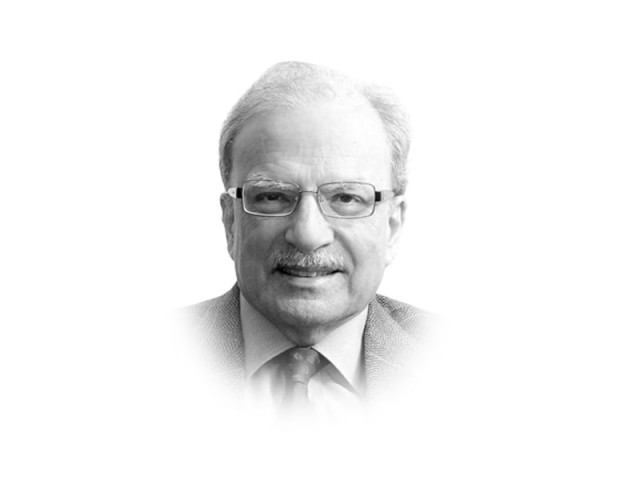Education problem has deep roots
Education sector suffered not only because of low funding but also because of wilful politicisation of institutions.

The writer is a former caretaker finance minister and served as vice-president at the World Bank
The education sector suffered not only because of the low level of funding it received from governments but also because of the wilful politicisation of educational institutions. The trend started with the administration of prime minister Zulfikar Ali Bhutto when he encouraged the formation of student unions on university and college campuses. These bodies were founded to help Bhutto and his political party to expand their constituencies. Students, particularly from the left of the political spectrum, responded with enthusiasm to these initiatives. However, what did great damage to public-sector institutions was the decision by General Ziaul Haq to promote the creation of rival student bodies affiliated with such Islamic organisations as the Jamaat-e-Islami and the Jamiatul Ulema-e-Islam. This led to the arrival of violence on campuses. The third shock to the system was delivered in Karachi when students belonging to the city’s Muhajir community organised themselves first on the campuses and then turned their organisation into a political party, the Muhajir Qaumi moment.
Lack of public sector attention to education has left Pakistan with a serious problem that could affect long-term economic growth, slow down attempts to reduce the incidence of poverty and make it difficult to narrow income disparities. Private initiatives have filled some of the gaps left by the public sector’s poor performance. However, in order to make a real difference, policymakers may have to do some ‘out of the box’ thinking. It may be necessary to help the private sector play an even greater role in the education sector and it may also pay to focus on some of the newer technologies that have become available.
As Thomas L Friedman wrote in an article recently, “nothing has more potential to lift more people out of poverty — by providing them an affordable education to get a job or improve in the job they have. And nothing has more potential to enable us to reimage higher education than the massive open online course, MOOC, platforms that are being developed by the likes of Stanford and the Massachusetts Institute of Technology and companies like Coursera and Udacity.” Within one year, the coverage provided by Coursera has increased from 300,000 students taking 38 courses taught by Stanford professors and a few other elite universities to 2.4 million taking 214 courses from 33 universities, including eight international ones.
There were reports that Pakistan was already one of the beneficiaries of the exponential development of the MOOC. A story on the 2013 Davos World Economic Forum singled out for special mention the presentation given by Khadija Niazi, a 12-year girl from Lahore, who may not have been the youngest speaker ever at the forum but was certainly captivating. According to this account, “hundreds of the conference’s well-healed attendees listened intently as Ms Niazi described her experience with massive online courses known as MOOC that are spreading around the globe … Her latest enthusiasm is for astrobiology because she is fascinated by UFOs and wants to become a physicist.”
According to another assessment, “enterprising academic institutions have taken the lead in online learning. Harvard and MIT, for instance, worked together to introduce EdX, which offers free online courses from each university. About 753,000 students have enrolled, with India, Brazil, Pakistan and Russia among the top 10 countries from which people are benefitting.” What seems to be happening is that while the government continues to neglect education, a variety of private initiatives are helping to fill some of the gaps that have been left.
Published in The Express Tribune, February 4th, 2013.
















COMMENTS
Comments are moderated and generally will be posted if they are on-topic and not abusive.
For more information, please see our Comments FAQ